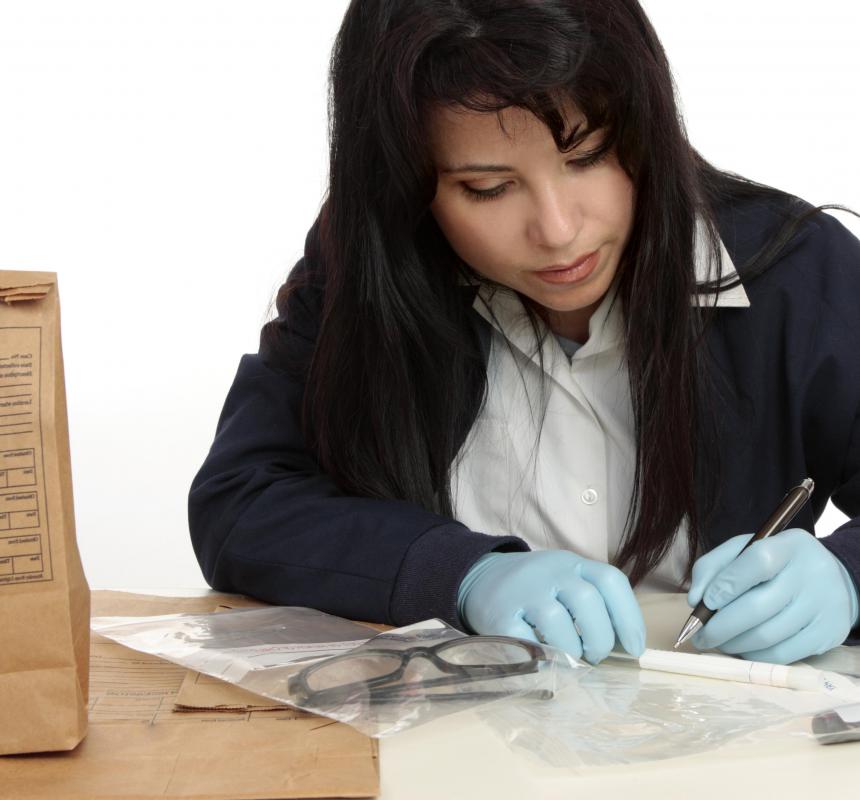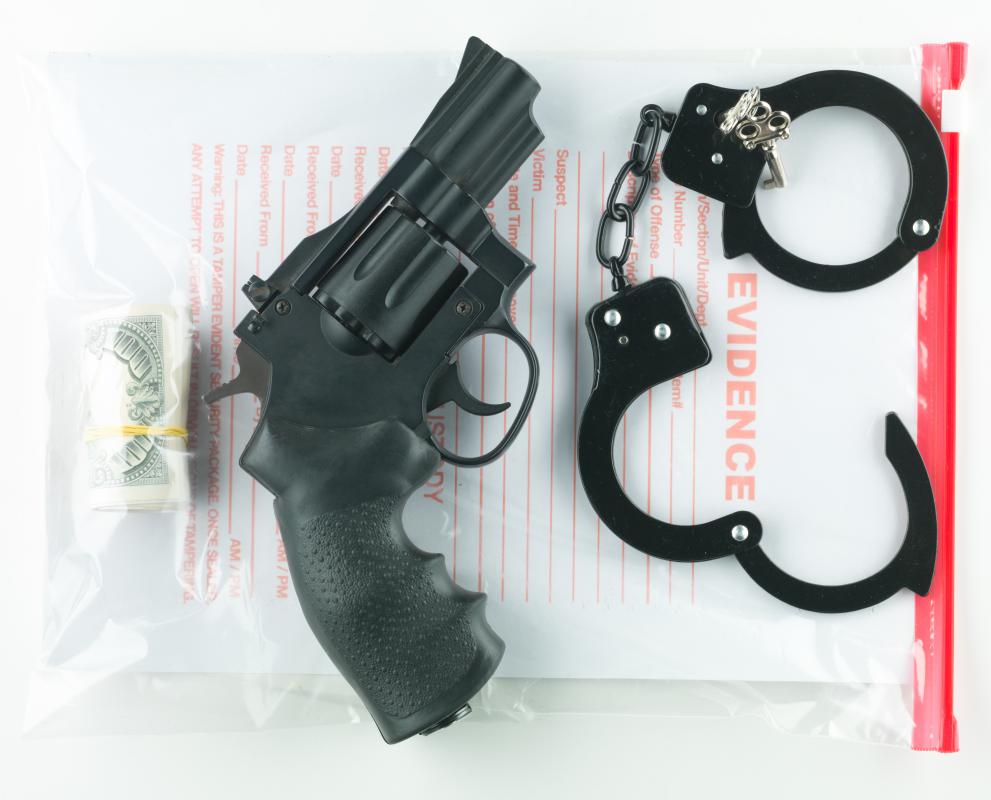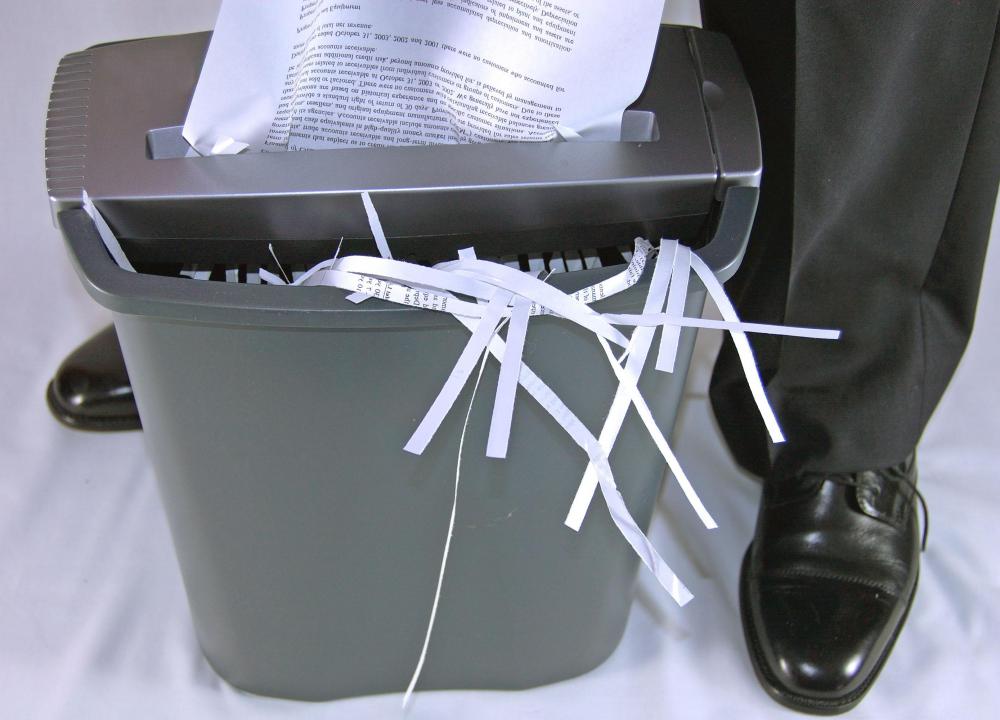At WiseGEEK, we're committed to delivering accurate, trustworthy information. Our expert-authored content is rigorously fact-checked and sourced from credible authorities. Discover how we uphold the highest standards in providing you with reliable knowledge.
What is Spoliation of Evidence?
Spoliation of evidence is the destruction, alteration, withholding, or hiding of evidence by a party involved in a legal dispute. This can be done purposefully, in bad faith, or it may simply be an oversight on the part of one of the parties involved with the legal proceedings. Purposeful spoliation can lead to legal consequences against the party who has committed the action, including criminal prosecution and further civil litigation. Spoliation of evidence can also often lead to a negative implication against the party responsible, which can be just as damaging as the evidence itself may have been.
Whether performed to purposefully mislead individuals involved with a legal proceeding, or merely as an oversight, spoliation of evidence typically serves to alter the potential outcome of a legal hearing. For example, in a civil case in which someone is suing the manufacturer of a coffeemaker that overheated and exploded, burning the person, the plaintiff may have disposed of the coffeemaker. Since this coffeemaker would have been important evidence in the hearing, the disposal of the device would be considered spoliation of evidence. Even if this was not done in bad faith, and was merely an oversight by the plaintiff, it can lead to several negative consequences.

Among the greatest consequences of evidence spoliation is the allowance of negative implications against the person. This means that the defense in the prior example can legally claim that the plaintiff must have disposed of the coffeemaker on purpose, and imply that this was because the coffeemaker did not explode, using this idea to discredit the plaintiff’s claim. The defendant can also call for a dismissal of the case on the grounds that it is unable to properly defend against a suit since the item cannot be fully considered. In this type of case, the spoliation of evidence could easily lead to the plaintiff losing the case without further consideration.

Spoliation of evidence can also be grounds for further legal action against a person, both criminal and civil. Someone who destroys important legal evidence in a criminal investigation may be prosecutable under criminal codes for tampering with evidence and interfering with an investigation. There are also civil laws in some areas that allow a party involved with a case in which spoilation has occurred to bring a lawsuit against the person or company responsible for the spoliation. This depends on the statutes of a country or region, however, and such torts may not always be viable.
AS FEATURED ON:
AS FEATURED ON:














Discussion Comments
@fify-- I don't know about other countries, but spoliation of evidence is a serious crime in the US. It's foolish to try it unless one wants to lose the case just for that reason.
It is obvious that someone would not tamper with evidence if the evidence was in their favor. So if a party to a case resorts to this, it's basically showing the court that they are guilty.
I can see how this can be a problem in countries where the legal system does not properly punish spoliation of evidence. But I don't think it's such an issue in the US since it's usually proven and taken very seriously by courts.
@AnswerMan-- That's very funny. But in such situations, why can't the assaulted person's statement be enough for courts to take action? The father must have physical signs of the assault, and there must have been witnesses. Shouldn't these be enough?
It's not always easy to prove that spoliation of evidence has taken place in a case. When a party in a legal dispute destroys or hides evidence, they also usually take precautions to make sure that this can not be proven. Unfortunately, the legal system in most countries have one or more loophole encouraging spoliation of evidence and other types of legal fraud.
In courts, nothing can be proven and punished without evidence. And destroying evidence is one of the most effective ways to change the outcome of a court a case.
I can see how someone could end up destroying criminal evidence by mistake, since he or she had no idea it would be needed for future legal action. I've thrown away cash receipts myself, never thinking I might need them to prove a purchase or establish an alibi. Sometimes evidence just spoils or disappears on its own.
I remember a criminal case that happened in my hometown when I was a child. A father and son got into a fight on Thanksgiving morning, and the son used a frozen turkey to assault his father. When the police arrived, both were charged with domestic violence and taken to jail. The frozen turkey had to be taken in as evidence, since it was the weapon of choice. The police station had no refrigeration units.
Since it was a holiday weekend, the investigators did not arrive at the jail until Monday. By then, the turkey had completely thawed and had begun to spoil. The smell was overwhelming. The turkey couldn't be thrown away, because it was still considered evidence.
Post your comments